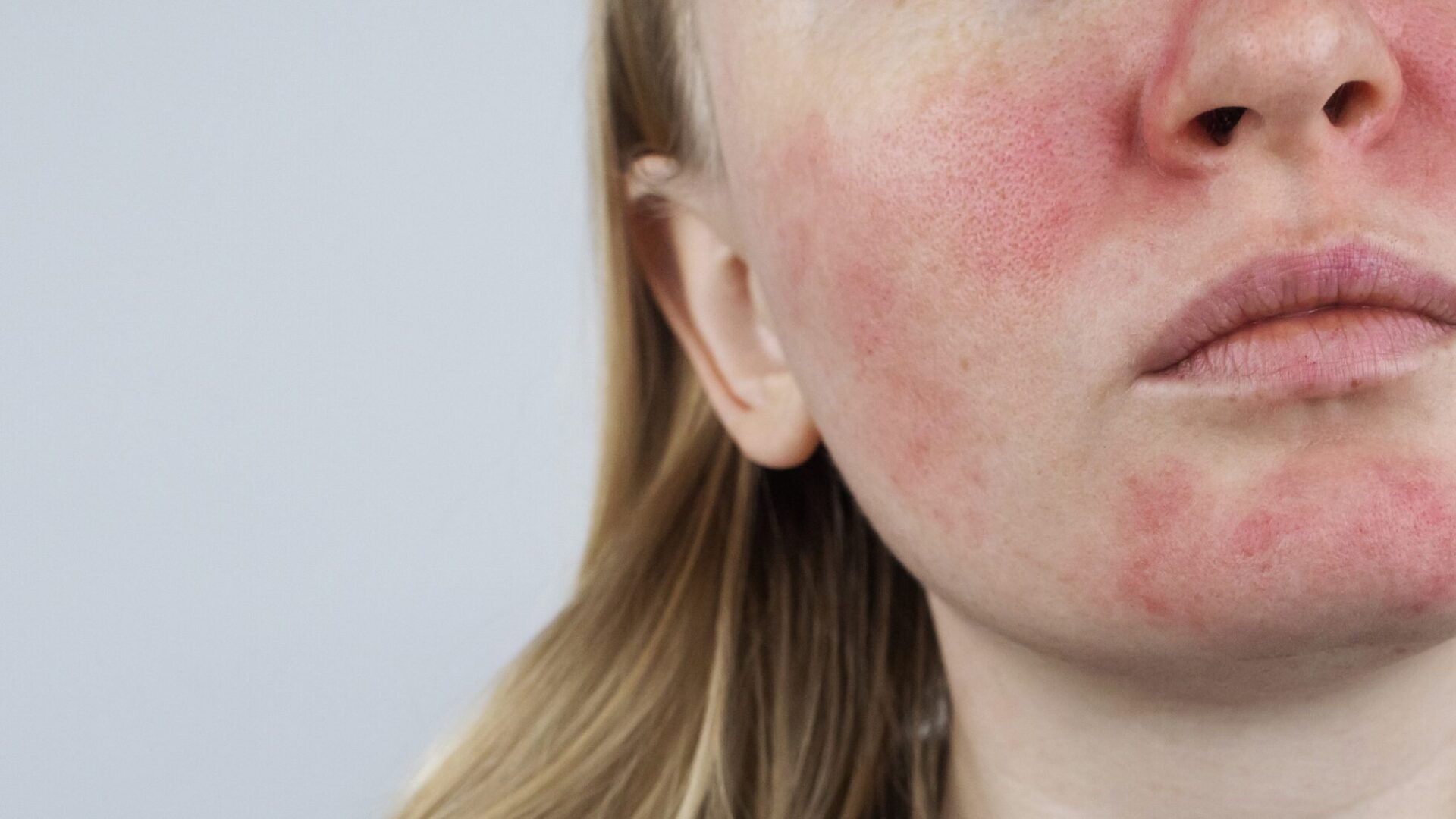Navigating Rosacea: Understanding Symptoms, Identifying Triggers, and Implementing Effective Management Strategies
Rosacea is a common skin condition that affects millions of people worldwide. It’s characterized by easy blushing or redness of the face that becomes more visible over time. Redness usually includes the cheeks, forehead, chin and ears, including acne-like breakouts. Although rosacea can affect individuals of any background, it is most common in fair-skinned individuals between the ages of 30 and 50. Women are more susceptible to developing rosacea than men, yet symptoms often appear more severe in male patients.
Symptoms
- Facial Redness: Persistent redness, particularly on the cheeks, nose, forehead, and chin, is a hallmark symptom of rosacea.
- Visible Blood Vessels: Small blood vessels under the skin may become visible.
- Papules and Pustules: Small, red bumps (papules) and pus-filled bumps (pustules) resembling acne can appear.
- Eye Irritation: Some people with rosacea experience eye dryness, irritation, and swollen eyelids.
- Thickened Skin: In severe cases, the skin may thicken, especially around the nose, leading to a condition called rhinophyma.
Triggers
While the exact cause of rosacea is unknown, certain factors can trigger or exacerbate symptoms. These triggers vary from person to person, but common ones include:
- Sun Exposure: Exposure to sunlight is a major trigger for many people with rosacea.
- Hot Weather: Hot and humid weather can cause flushing and worsen symptoms.
- Spicy Foods: Foods and beverages containing spicy ingredients like chilli peppers can trigger flushing.
- Alcohol: Both alcoholic and non-alcoholic beverages can trigger symptoms, but alcoholic beverages, especially red wine, are common culprits.
- Stress: Emotional stress can trigger flare-ups in many individuals.
- Certain Skincare Products: Some skincare products, particularly those containing alcohol or fragrances, can irritate the skin and worsen rosacea.
How to Manage
While there’s no cure for rosacea, different treatments can help manage symptoms and prevent flare-ups:
- Skincare Routine: Use gentle, non-irritating skin care products and avoid harsh cleansers and scrubs.
- Sun Protection: Protect your skin from the sun by wearing broad-spectrum sunscreen and wide-brimmed hats, and seek shade when outdoors.
- Avoid Triggers: Identify and avoid triggers that worsen your symptoms.
- Medications: Topical medications, such as metronidazole or azelaic acid, can reduce redness and inflammation. In severe cases, oral medications like antibiotics may be prescribed.
- Laser Therapy: Laser therapy can help reduce visible blood vessels and redness.
- Eye Care: If you experience eye symptoms, such as dryness or irritation, consult an eye doctor for appropriate treatment.
- Dietary Changes: While there’s limited scientific evidence, some people find that avoiding trigger foods helps reduce flare-ups.
Getting Professional Help
If you suspect you have rosacea or if your symptoms are interfering with your daily life, it’s important to seek help from a dermatologist. At Rejuvenation, our team of board-certified dermatologists can diagnose rosacea and recommend appropriate treatment options tailored to your specific needs.
If you or someone you know is struggling with rosacea, remember that you’re not alone. Get in touch with Rejuvenation Dermatology and let our team of expert dermatologists help you!










